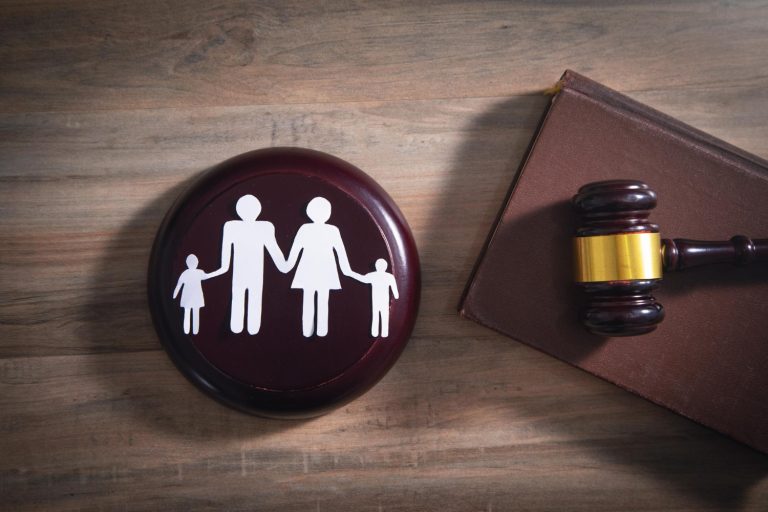Are you feeling overwhelmed by the complexities of family law? At MenduniMartindill, we understand how daunting family legal matters can be. With our years of experience as divorce lawyers, we’re here to guide you every step of the way. In this article, I’ll break down the basics of family law in a way that’s easy to understand. Let’s dive in and demystify this critical area of law together.
As stated in family law, it covers legal issues related to family relationships, like marriage, divorce, and child custody. Courts help settle disputes and ensure fair decisions. Lawyers assist in navigating these laws and representing clients.
Introduction to Family Law
Family law uniquely governs the various problems that may occur of familial bonds and domestic interactions.
Family law deals with a lot of family-related issues like marriage, divorce, child custody, adoption, and domestic violence. Its main goal is to manage the rights and duties of family members and to solve family disputes. Family laws depend on state rules, which can be different in each place.
When couples get divorced, family law courts handle important decisions like dividing property, spousal support, and child custody, always focusing on what’s best for the child. So to speak, in situations involving domestic violence, family law gives victims legal protection and can issue restraining orders against the abuser. Other issues that family law covers include paternity, child support, and guardianship.
Family law is important for protecting everyone’s rights in a family and making sure their legal needs are taken care of. These cases can be very emotional and complicated, so it’s very important to get help from a good family law attorney when facing such issues.
Key Concepts in Family Law
Family law encompasses fascinating principles, like the best interest of the child standard used in custody cases.
Understanding the basics of family law is important when dealing with legal issues involving families. Here are some key points:
- Marriage: This is a legal partnership between two people that comes with certain rights and responsibilities, like the right to inherit property or make medical decisions for each other.
- Divorce: This is the legal process of ending a marriage. It involves splitting property and money, deciding who gets custody of the children, arranging child support, and sometimes setting up alimony payments.
- Child Custody: This decides where a child will live and who will make decisions about their upbringing. By definition, this topic often comes up during divorces and can be quite contentious.
- Child Support: This requires a parent who does not have custody to financially support their child by making regular payments to the custodial parent.
- Domestic Violence: This refers to physical, emotional, or psychological abuse within a family or intimate relationship. Victims can get protective orders to help stop the abuse.
Types of Family Law Cases
Family law cases encompass diverse legal matters such as divorce, child custody, adoption, and domestic violence.
These cases can involve divorce, child custody, child support, adoption, domestic violence, and paternity. In divorces, the court decides how to split assets and debts and issues about spousal support. Child custody cases decide who the children will live with and who gets to visit them. Child support cases make sure parents give money to support their children.
Speaking, adoption cases legally make someone a child’s parent. Domestic violence cases aim to protect victims of abuse. Paternity cases determine who the child’s father is. These situations can be emotional and complicated, so it’s often helpful to have a family law lawyer to guide you through. It’s important to get legal help to protect your rights in family law cases.
The Family Court Process
The Family Court Process adjudicates complex issues like divorce, child custody, and domestic violence, often incorporating psychological evaluations and mediation sessions to reach amicable resolutions.
The process starts when one person files a request with the court and sends it to the other person. Both people then have to go to court hearings where a judge will hear what they have to say, look at the evidence, and make decisions that are best for the family. Sometimes, the court might ask the people to try mediation to reach an agreement without going to trial.
If they can’t agree, the court will make a final decision. This process can take a long time and be very stressful, but it’s needed to make sure family issues are handled fairly. It’s helpful to have a lawyer to guide you through the Family Court Process and protect your rights.
Finding Legal Assistance
Qualified lawyers can provide critical guidance, with studies showing that those who seek professional legal assistance are more likely to successfully resolve their legal issues.
Start by looking for law firms or lawyers in your area who handle the specific legal issue you have. You can ask friends, family, or coworkers for suggestions, or look online for reviews and ratings of different lawyers.
Once you have a few options, set up meetings with each lawyer to talk about your case. During these meetings, ask about their experience with similar cases, how they plan to handle your matter, and how much they charge.
After meeting with several lawyers, pick the one you feel most comfortable with and who you think can best help you with your case. Make sure to review and sign a retainer agreement that details the services they will provide, the fees, and the payment schedule.
Throughout the legal process, stay in regular communication with your lawyer. Provide any documents or information they ask for promptly and follow their advice to get the best outcome for your case. Remember, having a skilled and experienced lawyer can greatly improve your chances of success.

The Closing Remarks
Family law operates on the principle of protecting the legal rights and obligations within familial relationships. It encompasses a wide range of issues including divorce, child custody, adoption, and domestic violence.
What MenduniMartindill is advocating for is, by providing a framework for resolving disputes and ensuring the well-being of all family members, family law plays a very important role in maintaining stability and harmony within households.
References
- Family Law: Text, Cases, and Materials by Sonia Harris-Short, Rob George, Nicola Burch, and Jaheen Fiaz, Publisher: Routledge
- Principles of Family Law by Maureen Johnson and Samantha Leorona, Publisher: West Academic Publishing
- Family Law: Frameworks, Skills, and Practice by Asha Bajpai and Flavia Agnes, Publisher: Oxford University Press






